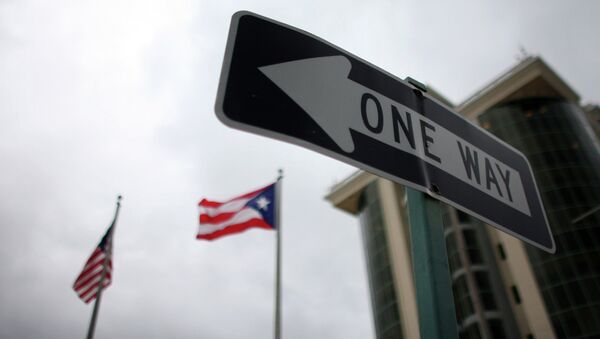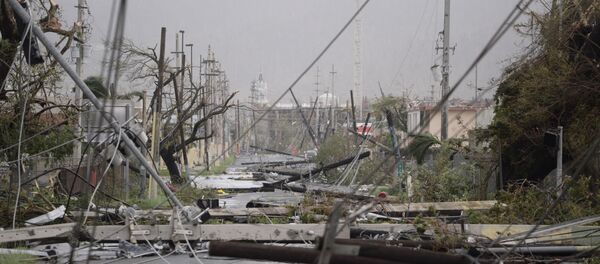The restructuring agreement, which was announced late Monday, indicated that a bondholder group and the Puerto Rico Electric Power Authority (PREPA) would swap out existing bonds for new debt and link payments to the island's economic recovery, according to Reuters. Puerto Rico's Governor Ricardo Rosselló has suggested that the deal would result in erasing more than $3 billion of the company's debt.
The day after the deal was hatched, PREPA's bonds were "the most actively traded municipal securities" as investors raised bond prices by some 40 per cent, Bloomberg reported.
"It is good news for PREPA, for the power authority, as it was able to negotiate some drawbacks on its debt, meaning that debt holders are willing to take a hit, at least in the short term, in favour of stabilizing the utility in the long term," the professor told hosts Brian Becker and John Kiriakou. "However, for the people of Puerto Rico, the people who pay for the bill that the electric utility sends out, it is not very good news."
Say hello to potential spikes in utility costs, Garriga-López warned.
"There are some assurances that there will be other kinds of measures taken that would counteract those fees, but it seems very difficult to imagine a way in which the debt gets paid without raising the prices of consumer electricity for Puerto Ricans," she stressed.
Since Rosselló first brought up the idea to privatize PREPA in January, the Union of Workers of the Electric and Irrigation Industry (UTIER) has strongly denounced the plan, stressing that the "welfare of the people" is not something that the politician was interested in.
"The Governor is taking advantage of the pain of thousands of people who are currently without electric power," the labour union stated in a January news release. "Given the insensitivity of Governor Ricardo Rosellá of announcing the privatization of PREPA in the midst of the suffering of almost half a million Puerto Ricans who still do not have electricity, UTIER once again raises its voice in favour of the people."
According to Garriga-López, if Rosselló is able to close the deal, the agreement would likely lead to the privatization PREPA and the letting go of employees, and could ultimately cause the demobilization of UTIER.
"Whatever the future of Puerto Rico is, it has to be one in which the people of Puerto Rico fully participate in the determination of what it should be," the professor said.
The deal comes days after a new chief executive was appointed to lead PREPA, the fifth one since Hurricane Maria slammed into the island in September 2017 and trashed the territory's already struggling electrical grid.


